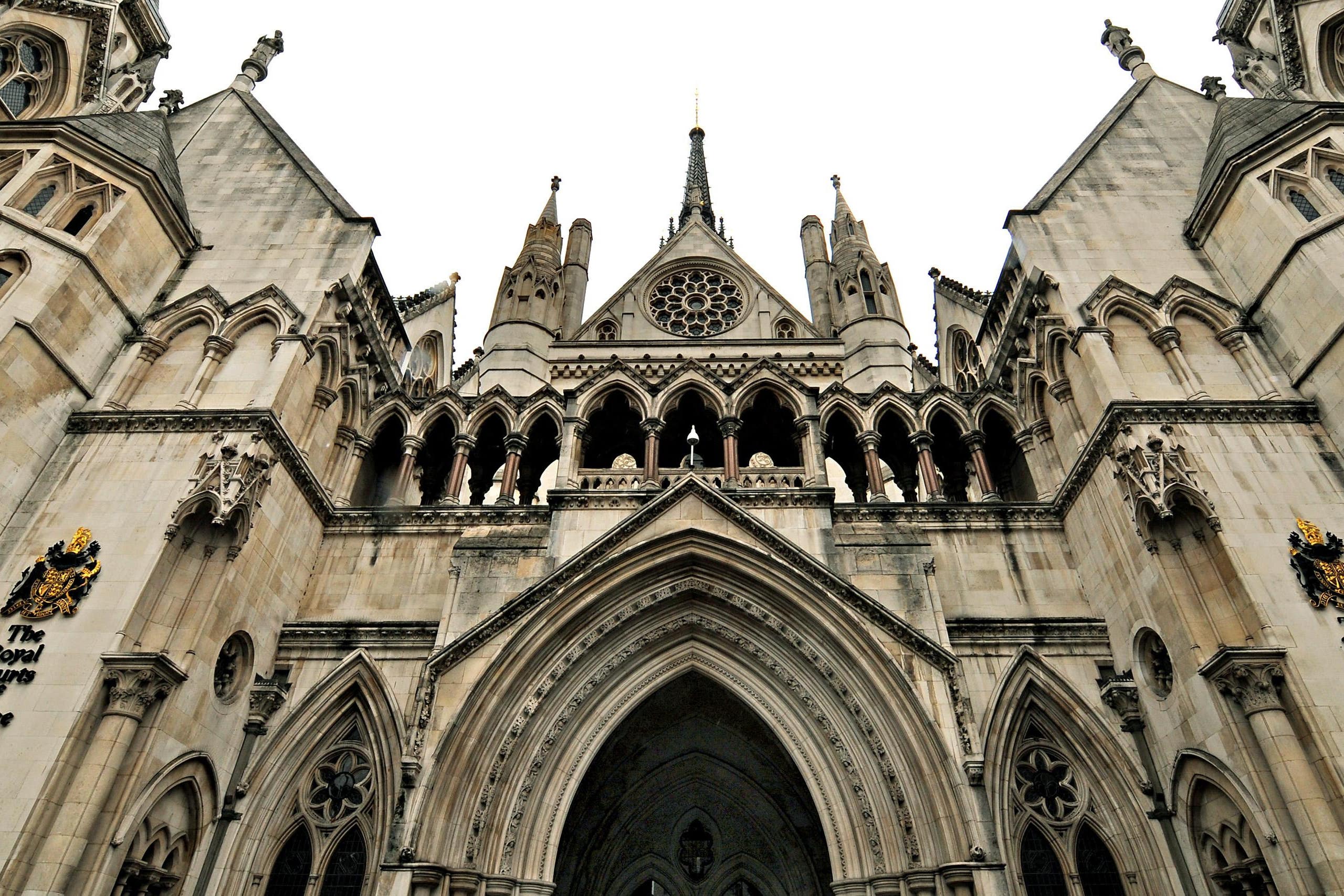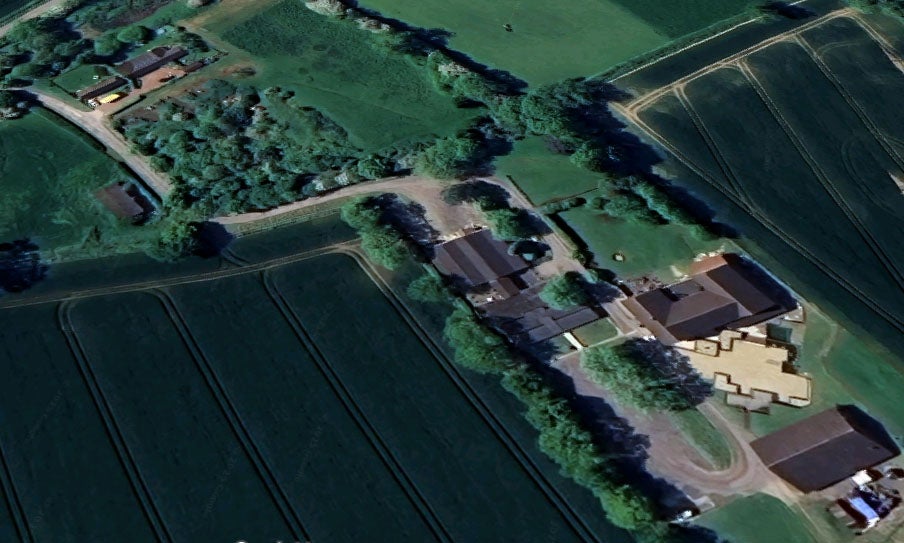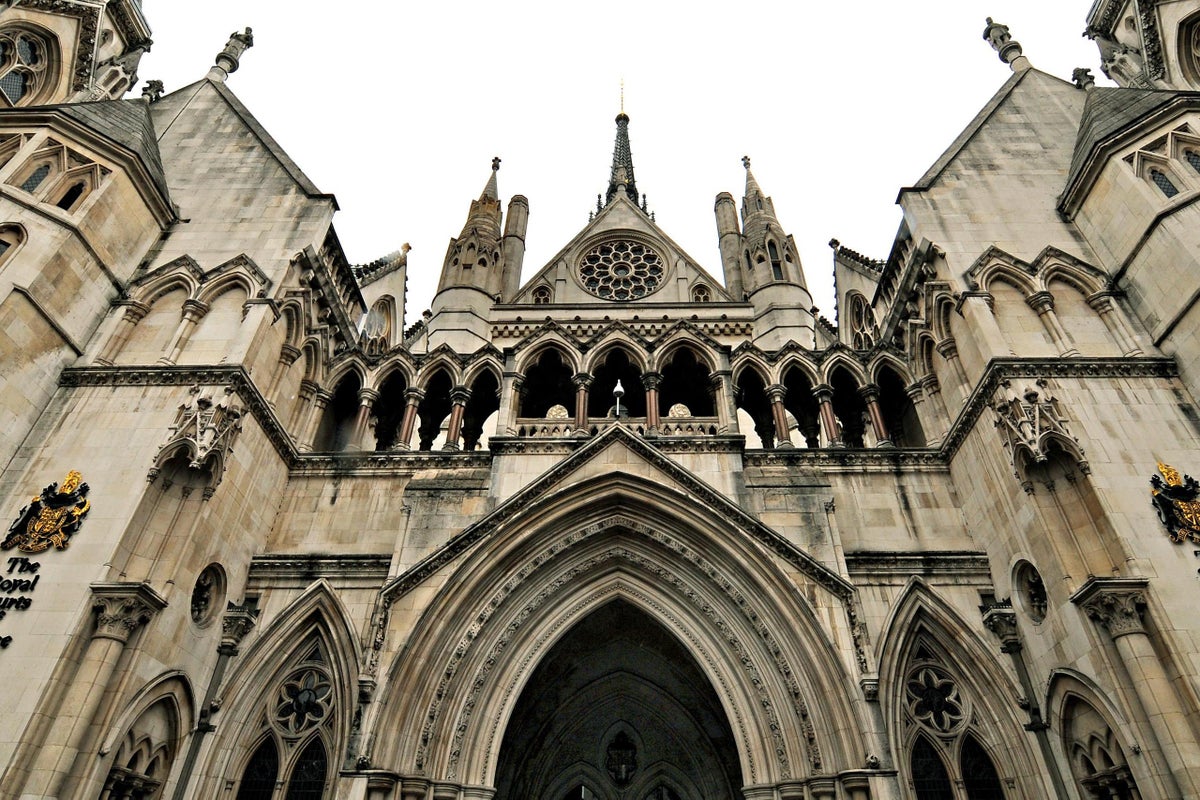- News
- UK
- Home News
Graham Cheslyn-Curtis, boss of veterinary medical supply company Millpledge, died in 2018
Richard GittinsTuesday 25 November 2025 09:44 GMTComments open image in galleryThe High Court in London (Anthony Devlin/PA) (PA Archive)
open image in galleryThe High Court in London (Anthony Devlin/PA) (PA Archive)
Get the free Morning Headlines email for news from our reporters across the world
Sign up to our free Morning Headlines email
Sign up to our free Morning Headlines email
 Email*SIGN UP
Email*SIGN UPI would like to be emailed about offers, events and updates from The Independent. Read our Privacy notice
The stepchildren of a multimillionaire animal medicine tycoon have won a court fight over control of his £8.2m fortune after complaining they were labelled "entitled spoilt brats" by the man he left in charge of his empire.
Graham Cheslyn-Curtis, boss of multinational Notts-based veterinary medical supply company Millpledge, died in 2018, leaving along with his will a detailed letter of wishes expressing hope that his partner's son and daughter - who he treated "as his children" - would be groomed to take over running the multimillion pound business in his place.
Twice married Mr Cheslyn-Curtis established a trust appointing his top aides to "tutor and mentor" the siblings, Leah-Jane Styring, 47, and Nathan Smith, 49, bringing them into the business in senior roles and making them directors according to his wishes.
But things went badly wrong, with the relationship between Nathan and Leah and trustees Malcolm Taylor and Paddy Campbell, 70, - who became chairman of the company board after Graham's death - "comprehensively breaking down".
The High Court was told the pair had become disgruntled about the level of their payouts from Graham's trust, which were controlled by the two trustees plus Graham's sister Sarah Cheslyn-Curtis and their uncle Maldyn Stephen Henry Worsley-Tonks.
Nathan and Leah ended up being removed from their roles in the business, with Paddy complaining that it was suffering through their involvement and criticising them as "self-interested, entitled, complacent, acquisitive and greedy."
The pair went on to sue, complaining that the trustees were unfairly prejudiced, having regarded them as "entitled spoilt brats" - and have now succeeded in having Paddy and Malcolm removed from their controlling roles in the trust.
 open image in galleryMillpledge headquarters (Supplied by Champion News)
open image in galleryMillpledge headquarters (Supplied by Champion News)Allowing their claim at the High Court, judge Deputy Master Andrew Holden said: "This is a case which has gone beyond mere friction and hostility, and is a situation in which the hostile views about Leah and Nathan formed and expressed by Paddy could well have an adverse impact on the proper administration of the trust."
He also went on to remove Malcolm, saying: "Malcolm has explicitly agreed with the hostile remarks about the claimants made by Paddy. Ultimately, I consider that I ought to ensure that negative personal views about the claimants’ character which have been formed by Paddy, and which appear to be shared by Malcolm, do not adversely affect the future administration of the trust."
The court heard that Graham Cheslyn-Curtis, who by the time of his death was the sole owner of £6.8m animal meds suppliers Millpledge Group, left behind an £8.2m estate when he succumbed to pancreatic cancer at the age of 69 in his listed mansion home, Whinley's House, in Clarborough, near Retford, following an 18-month illness.
Despite having a son from his first marriage, he had treated Nathan and Leah - the son and daughter of his partner of 30 years, Suzanne Smith - "as his children," the judge said.
In his will, he established a "dynastic trust" for the benefit of Guy, his son from his first marriage, alongside Suzanne and her children.
Alongside instructions setting up the trust, he left a letter of wishes setting out how he hoped long-term his associates Paddy Campbell and Malcolm Taylor could guide Leah and Nathan to eventually spearhead the business whilst controlling the paying out of cash to them from the trust.
 open image in galleryThe High Court in London (Anthony Devlin/PA) (PA Archive)
open image in galleryThe High Court in London (Anthony Devlin/PA) (PA Archive)The court heard Paddy Campbell - who became company chairman - was a business consultant who grew close to Graham after they began working together in 2002 and was described by Graham as his "confidant for many years."
Malcolm Taylor, who joined Millpledge in 2002 and worked there in finance until his retirement last year, was also described by the judge as one of Graham's "trusted associates."
"What Graham wanted to happen was for Nathan and Leah to be directors of Millpledge," said the judge.
"He wanted Paddy and Malcolm to 'tutor and mentor' them in that role. He wanted much of the profit generated by the business to be re-invested into its future success.
"In particular, he wanted Nathan and Leah to consider re-investing their share of the profits paid to them as directors back into the business. He wanted the business to flourish in the longer term under the stewardship of Nathan and Leah, just as it had under his.
"Nathan and Leah would be made directors of the company...and they would be paid at the market rate. Paddy and Malcolm would 'tutor and mentor' them into becoming 'professional and responsible corporate directors'."
The judge said however that in 2023 Leah was removed as a director of the company, followed by her brother the following year.
"Unfortunately, Graham’s worldview has not come to pass," he said.
"On the contrary: since Graham’s death there has been a comprehensive breakdown of relations, culminating in Nathan and Leah being removed as directors and dismissed as employees of Millpledge.
"Shortly after Nathan’s dismissal, the claimants brought the present claim seeking to replace the trustees.
"One particular source of tension was a disagreement as to a cap which the trustees placed on ‘profit share’ payments to the directors – including Nathan and Leah – of 1.5 times base salary."
Although there was evidence that the limit was to conserve cash during the Covid-19 pandemic, "it is apparent from contemporaneous emails that Nathan was very unhappy with the imposition of the ‘profit share’ cap," he continued.
During the trial, the siblings' barrister, Paul Burton, argued that the trustees had viewed Nathan and Leah as “entitled spoilt brats” and had in reality set about to exclude them from receiving any benefit from the trust.
But in a statement to the court, Paddy said they were not willing to favour the personal interests of any beneficiaries above others, nor to go against Graham's wishes.
"The claimants have grown frustrated at not getting their own way all of the time and this sense of entitlement is plain for all to see in their statements and in the way that they have continually placed their own individual interests ahead of the interests of others," he said.
"The claimants have shown themselves to be entitled and greedy, with their sole focus being the acquisition of money and control. The claimants have refused to accept the structure of the trust and that they are not in control of Graham’s estate and this has always been a source of extreme frustration to them.
"Nathan and Leah’s sense of entitlement morphed into complacency where the company was concerned, and it is this complacency and their deep-rooted greed which drove Nathan to pursue an agenda against me as chairman, and against the board as a whole, and which ultimately resulted in Nathan’s termination from the company as both a director and employee and Leah’s termination as a director of the company too.
"Sadly, Nathan and Leah’s complacency was jeopardising and disrupting the performance of the company and in turn, the performance of the trust. This being the case, the trustees were left with little option but to terminate Nathan and Leah as directors.”
Ruling that Paddy and Malcolm needed to go, the judge said: "In essence, Paddy has formed the view as a result of their company level battle that Nathan and Leah are self-interested, entitled, complacent, acquisitive and greedy. Paddy’s view is that Nathan and Leah’s actions have been driven by their complacency and, as he has called it, their 'deep-rooted greed.'
"The distinct impression that I am left with from his evidence is that he has formed a deeply negative view, not simply of the claimants’ actions, but of their character as individuals. In my judgment, it is fair to say that the views he has expressed show outright hostility towards the claimants.
"Whatever the provocation, in my judgment the trenchant and deeply negative views expressed by Paddy about the claimants give rise to a reasonable concern that he will find it very difficult to carry out his duties as one of the trustees of the trust with the objectivity and impartiality required.
"For example, Paddy’s view that the claimants are motivated by 'deep-rooted greed' could well adversely impact on his consideration of any request made by the claimants to receive a distribution from the trust.
"I have reached the conclusion that Paddy should be removed as a trustee of the trust.
"In his evidence, Malcolm has explicitly agreed with the hostile remarks about the claimants made by Paddy. Ultimately, I consider that I ought to ensure that negative personal views about the claimants’ character which have been formed by Paddy, and which appear to be shared by Malcolm, do not adversely affect the future administration of the trust.
"I have therefore decided that Malcolm should also be removed as one of the trustees of the trust."
The judge refused the siblings' bid to get the family trustees removed also, saying neither Sarah nor Maldyn had "exhibited any animus towards the claimants."
He continued: "The retention of Sarah and Maldyn as trustees will also provide for a measure of continuity in the trusteeship.
"I therefore conclude that I ought to remove Paddy and Malcolm as trustees of the trust; and appoint a professional trustee to act as trustee of the trust together with Sarah and Maldyn as the continuing trustees."
The judge said that, in a message before his death, Graham had described his attempt to “rule from the grave” as a “bloody awful prospect.”
"In fact, what he wanted was a continuation of his life’s work by members of his family under the guidance of his trusted advisors," he continued.
"There is nothing awful about that prospect, and it is deeply regrettable for all concerned that it has not been fulfilled."
More about
ChildrenTrustJoin our commenting forum
Join thought-provoking conversations, follow other Independent readers and see their replies
Comments

